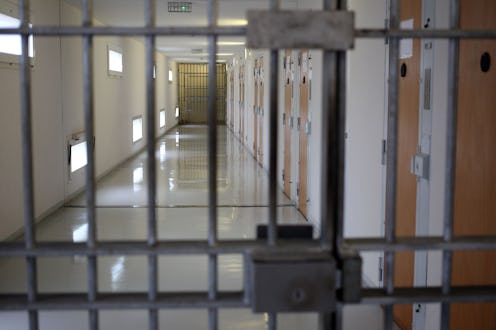News
Michigan Might Compensate The Wrongfully Jailed
Michigan is one of the top five states that most often releases inmates who were wrongfully convicted. Because of that, the state is trying to pass a bill that would help wrongfully-convicted inmates get back on their feet after years spent in prison. The new bill would allow Michigan to compensate the wrongfully convicted with $60,000 per year of wrongful incarceration, plus lost wages, medical expenses, and attorney fees, according to the Associated Press. Unlike 30 other states, Michigan doesn't provide the wrongfully convicted with any kind of financial support, and this bill hopes to fix that.
So far, the bill was approved by a legislative committee and will have to pass at least one more vote before it's signed into law. The bill's supporters hope it will be passed soon, though, since it has been sitting in the backseat for almost 10 years now, according to the AP. Michigan Gov. Rick Snyder, a Republican, has even called on lawmakers in the past to do something to help innocent inmates get "back on their feet," though he hasn't outwardly supported this bill yet. Why? Probably because it would cost the state a lot of money, and it affects so few of Michigan's 9.9 million residents.
The upfront cost of compensation the state owes to wrongfully convicted inmates is almost $16 million, according to the AP. About 56 people have been freed in Michigan since 1989, and about half of them would qualify for between $30,000 and $2.1 million. But State Sen. Dave Hildenbrand, a Republican who heads the chamber's spending panel, told the AP the cost to Michigan would be minimal overall. He said the state has an obligation to "make it right." Democratic State Sen. Steve Bieda agreed and told the AP that wrongfully-convicted inmates need help to get their lives back:
This is really just designed ... to recognize the fact that this person lost their freedom. We're trying to get them reintegrated into society and to put them at a level of comfort without necessarily being a billionaire walking out of the system.
Julie Baumer served four years in prison for a child abuse conviction after her nephew's head injuries were mistakenly blamed on shaken-baby trauma. When she was exonerated, she lived in a homeless shelter while struggling to mend her relationships with friends and family. Now, she works an entry-level administrative job for a church parish, according to the AP:
There's no closure. It's just an open wound that continually oozes emotional pain.
Even though the wrongfully convicted are innocent, they often still have a criminal record that shows up in background checks, according to the Innocence Project. They also are forced to take entry-level jobs or go back to school to catch up with the market that was passing them by while they were in prison. Further, they also suffer emotional harms — many of them lose contact with family members and colleagues, which makes it even more difficult for them to find the support necessary to reestablish their lives.
A number of states already have statutes that help the wrongfully convicted. Most notably, Texas compensates the wrongfully convicted $80,000 per year in prison plus a monthly annuity, college tuition, and job training, according to the AP. Not all states compensate that well, though. New Hampshire gives a maximum of $20,000 and Montana only covers educational expenses. Some of the 30 states that do have laws regulating compensation have caps on how much compensation someone can receive.
When it comes right down to it, time is money. Especially when that time was spent in a way that actually keeps you from achieving in the future. Right now, in states without compensation laws, the wrongfully convicted often rely on whatever volunteer help they can get.
For example, Jaime Peterson is a mentally disabled man who spent 17 years behind bars for a rape and murder before being cleared by DNA evidence last year, according to the AP. David Moran, director of the University of Michigan's Innocence Clinic said he "would have been living behind a dumpster" if law students at the clinic hadn't helped find him a group home and provided him with food, clothing, and a legal guardian. But all of that work was done on a volunteer basis, and — given the number of wrongly accused who are exonerated every year — that just won't cut it all the time:
We have people trying to hold things together hoping the compensation comes. But as we get more people out, it just becomes harder and harder for people to volunteer help. Volunteer help is not compensation.
